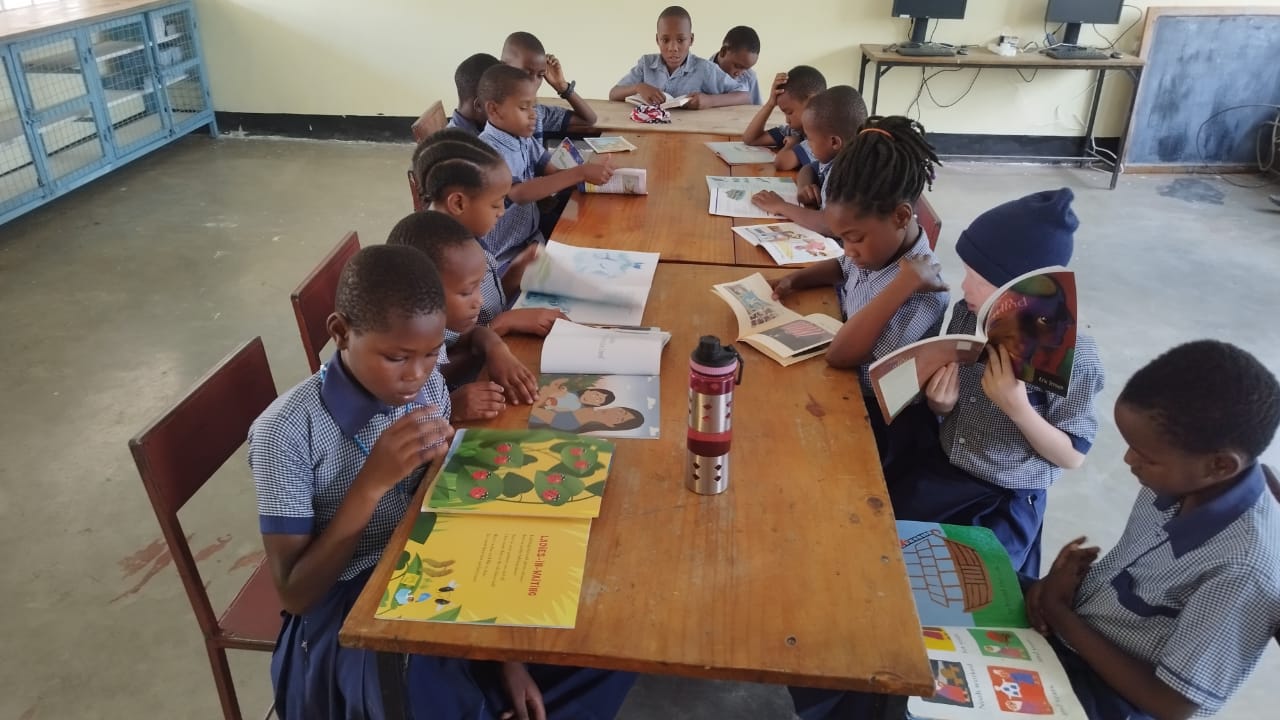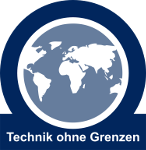School Library for Trinity Academy, Tanzania, Boma Ng’ombe
About the Project

What is it about?
In some rural areas of Tanzania, the literacy rate is still low. Many children have no access to books, which means that they never learn to enjoy reading and hardly read beyond the school curriculum. Together with our project partners at Trinity Academy, we wanted to change this!Trinity Academy Pre- and Primary School is a private school in Tanzania with several hundred students, app. 25% of them orphans. Between 50 and 100 kids are boarding students.
Trinity already started to collect books for kids and dedicated a room at the school as a reading area before we stepped in on this task. We partnered with Trinity during several other projects already to help them to become a sustainable school with high level of education. Previous finished projects included tree planting and the construction of a sustainable Kindergarten. Ongoing projects with Trinity include agroforestry on the school farm, rainwater collection, solar power and biogas for the school kitchen.
Implementation
In this project, we set up a school library with English-language children's books.A room at Trinity Academy was cleaned up and equipped with bookshelves. The shelves were done by local craftsman as closed lockers made from metal. The room also got a desk and chairs and can be used for reading.
We collected some second-hand English books in Germany and brought them to Tanzania. Additionally, Trinity received a book donation from another sponsor, so that the library now contains around 800 books.
In addition to the books, we also brought a laptop with an easy-to-use library software that allows us to register the books and record the borrowing and return processes.
Our partner from the dk Computerschule Gießen developed the software via HCL Notes. This allows the title, author, publisher and location of the book to be entered. The books can be categorised into subject groups, the age group for which they are suitable can be specified, a short summary can also be entered and keywords can be assigned. The status of the book (in library, borrowed by whom and also lost) can be entered.
While Christine and Peter were in Tanzania to celebrate the Trinity 10th anniversary party, they entered the books into the software.
Currently, the teachers manage the borrow-and-bring-back process. The children are able to read or borrow books in the library after school and the boarding school children are also able to use the library at weekends. It may also be possible to open it to interested parties from the village in future. As soon as the whole thing is a bit more “business as usual”, the older students can start to be included in the library service more and hand out the books and work with the software. In a rotating programme, pupils from the higher year groups can be given the opportunity to temporarily take on the role of librarian.
Who benefits?
The programme is aimed at Trinity Academy pupils, but can also be made available to children from other schools after a successful initial phase. The idea is that by improving their reading comprehension, the children can achieve a better school-leaving certificate and thus have long-term opportunities for higher education and better careers.What sustainable development goals are being adressed?
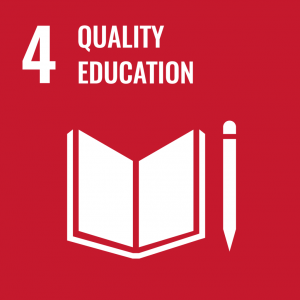
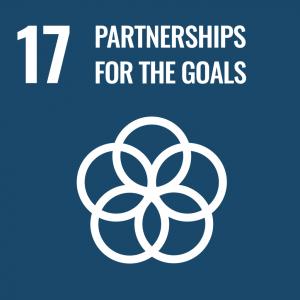
Our Partners

Gallerie
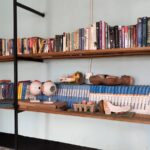
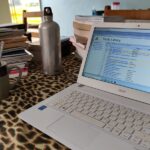
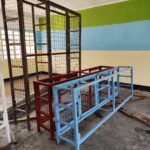
Information
Project number
TZA_29_ED
Project Leader
Christine Dillmann
Regional Groups
- Rhein-Main
Project members
Franziska Enzmann
Peter Scheunert
Project Category
 Education
Education Timespan
July 2024 - October 2024
Project stage
finished
News
Ready, steady, read!
